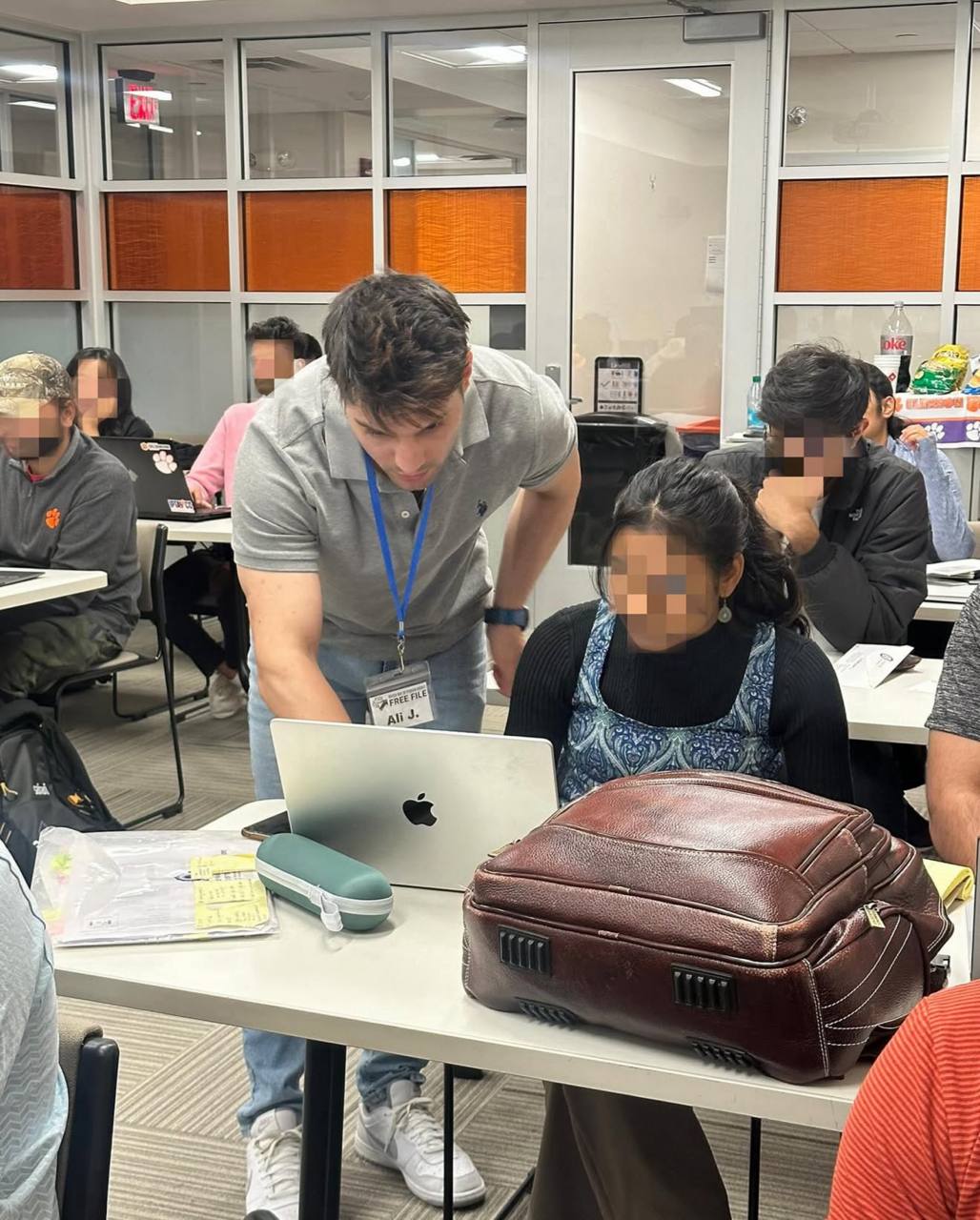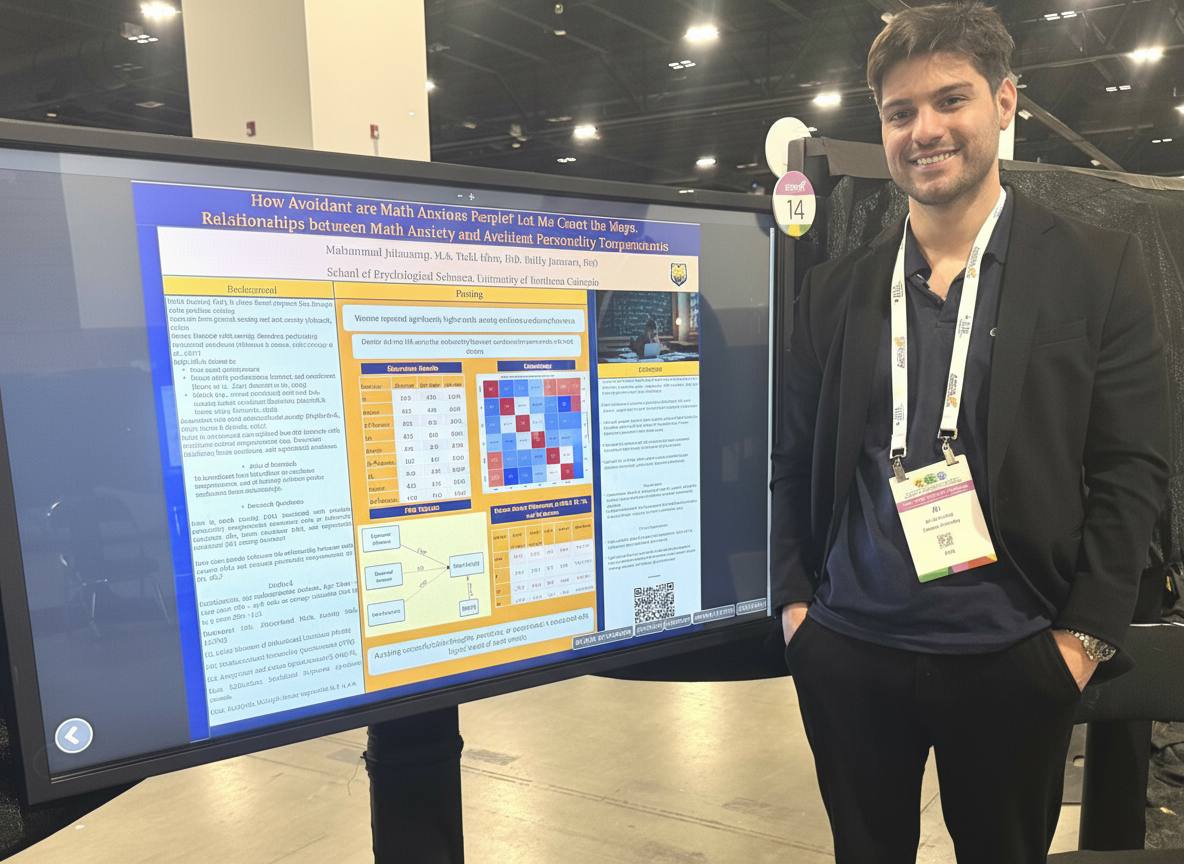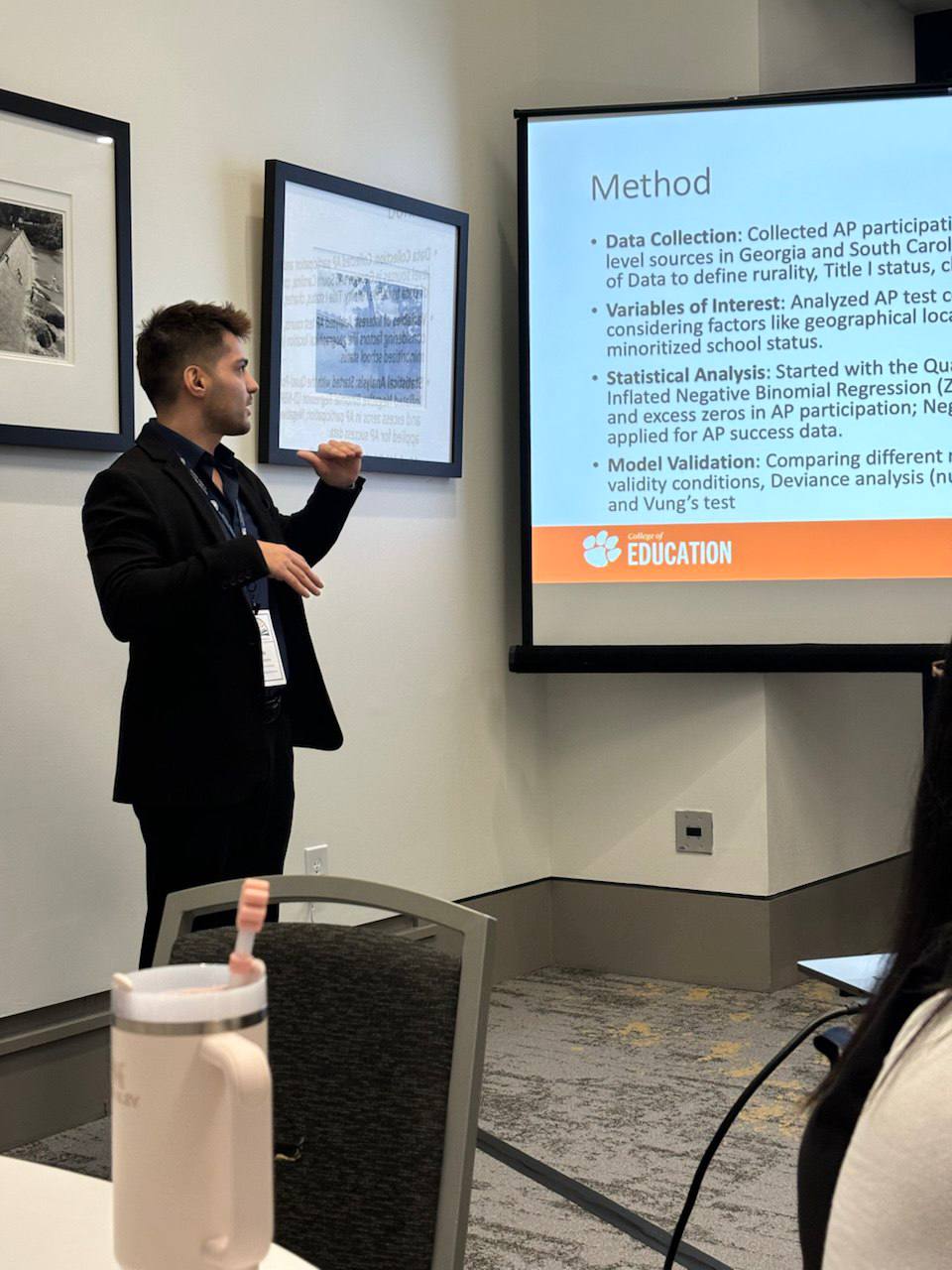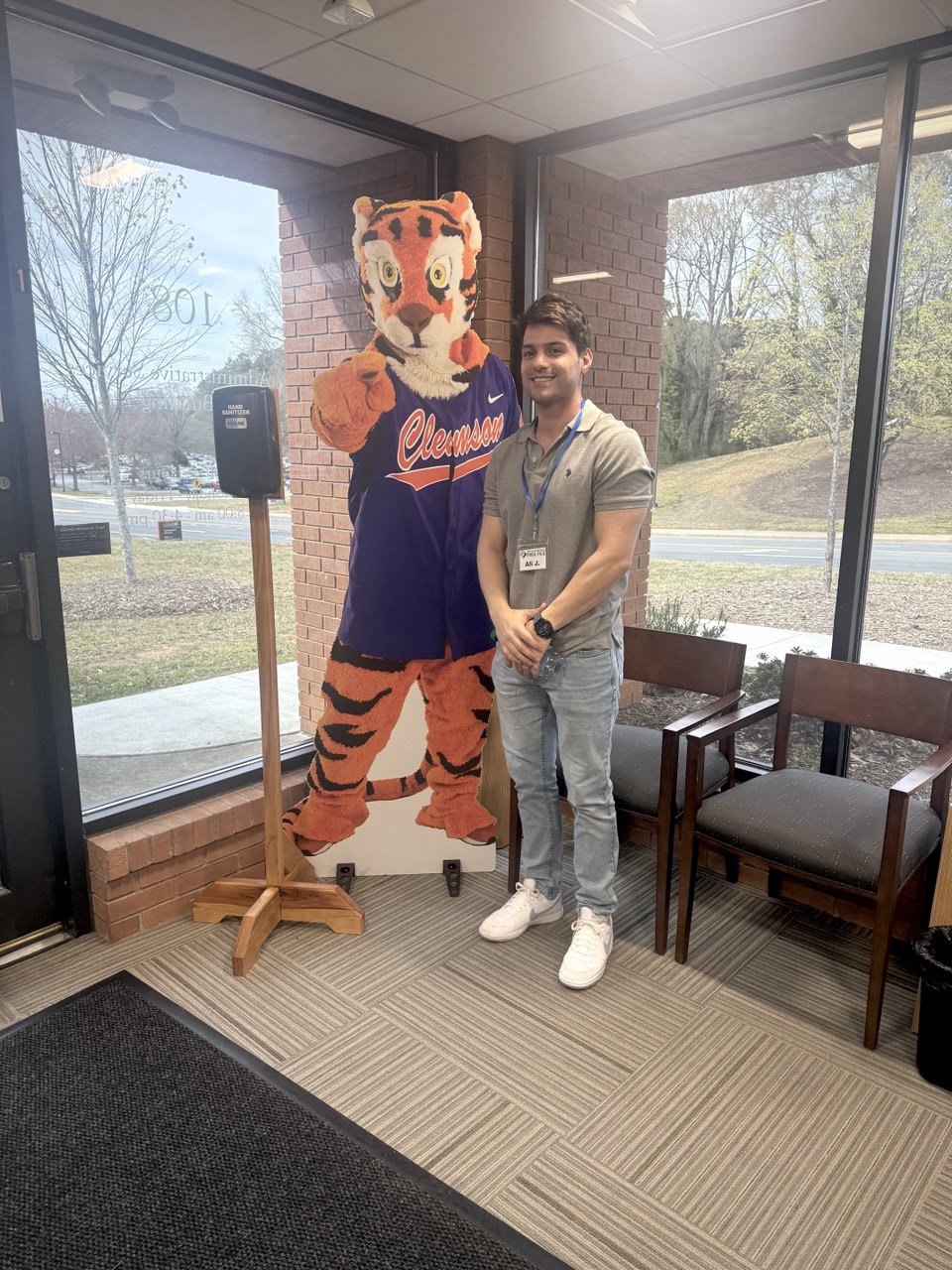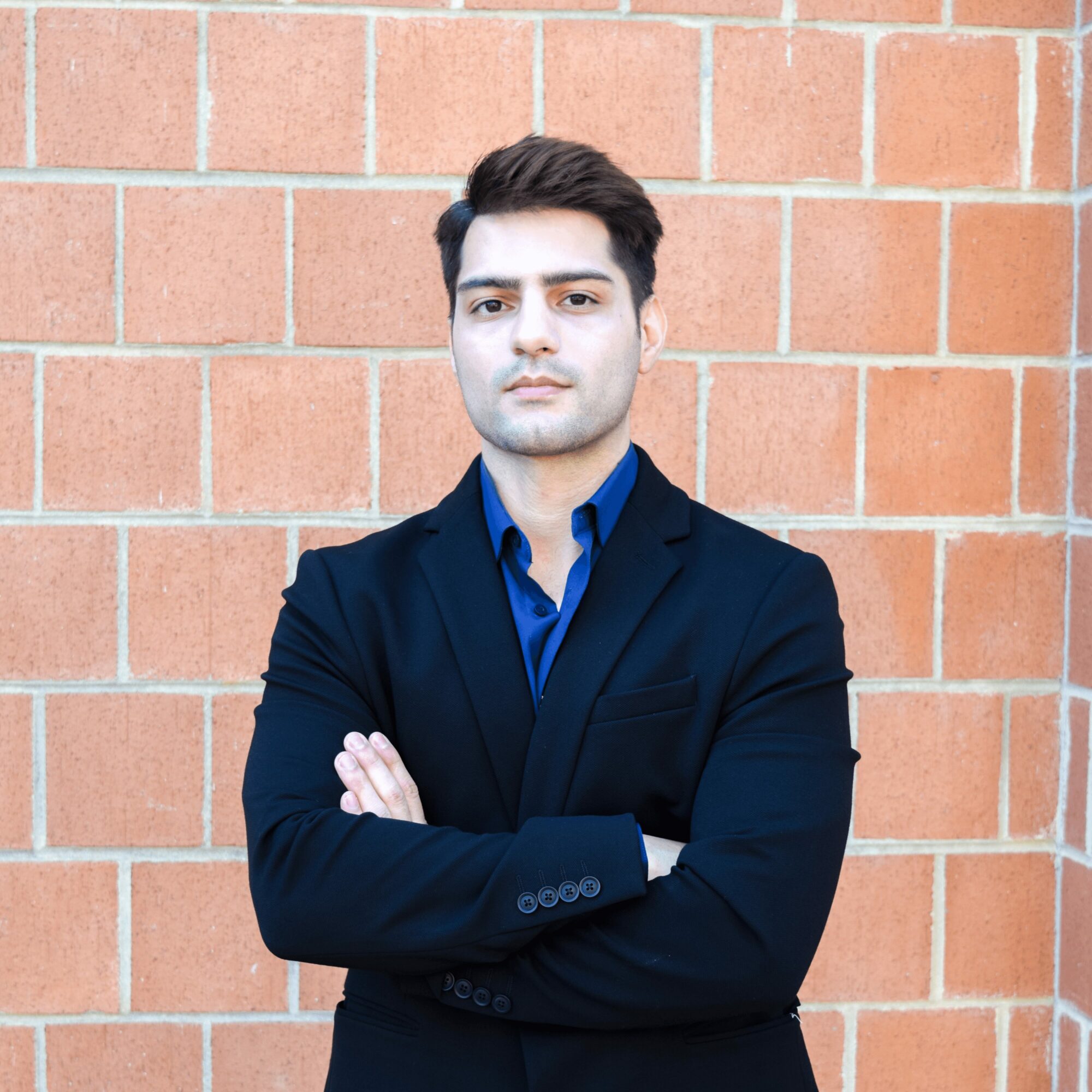

Today we’d like to introduce you to Ali.
Hi Ali, it’s an honor to have you on the platform. Thanks for taking the time to share your story with us – to start maybe you can share some of your backstory with our readers?
I grew up in a working-class district of Mashhad, Iran, as the fifth child out of six, my twin brother being the youngest. My parents separated when I was six, and from that moment on, my mother became the center of our world. She didn’t have much, but she always reminded us that education was the key to breaking the cycle of poverty. Her belief became the foundation of who I am.
When I was in 10th grade, my Algebra teacher, Mr. Hoshmand, noticed that I seemed lost and unsure of myself. One day, he handed me a book — Unlimited Power: The New Science of Personal Achievement by Tony Robbins, and told me to read it. That book changed my life. It taught me that even if we are born into hardship, we can change our path through perseverance and belief. Everything begins in our thinking.
That book opened my eyes to how our subconscious fears and learned limitations quietly shape our lives. I started to notice how my own thoughts and habits were holding me back from becoming the person I wanted to be. I made it my goal to challenge those patterns to train my mind the way an athlete trains his body, and to keep striving for a life of growth, service, and self-mastery.
My academic journey was far from smooth. I failed nearly all my subjects in 12th grade except for physical education. Sports were my world; I played soccer for my high school and city league, and trained in martial arts for years. But the long hours of practice took me away from school, and I was eventually expelled. That painful lesson taught me that talent alone isn’t enough; discipline and education are what truly transform lives.
I later earned a B.A. in Robotics while working multiple jobs to survive. But during those years, I realized that no matter how hard I worked, my opportunities were limited without advanced education. That realization became my turning point. I decided to devote my life to education, not just for myself, but to create opportunities for others. I began teaching English in underserved schools, where I saw my own childhood reflected in the faces of my students. Teaching became more than a job; it became a mission.
In 2019, after years of preparation, I was accepted to study for a master’s degree in Italy. However, the COVID-19 pandemic struck, and my visa was subsequently rejected. I stayed in Iran, completed my master’s degree in Teaching English as a Foreign Language, published papers, and continued to try. Fifteen years after that original dream of coming to America, I finally arrived in the United States, in South Carolina.
Today, I’m pursuing my Ph.D. in Educational Leadership (P–12) at Clemson University, where I serve as a Graduate Research Assistant in the College of Education. My research focuses on rural education and equity, examining how geography, school resources, and policy influence students’ academic outcomes and long-term opportunities.
Although I wasn’t raised in a rural setting, my research in South Carolina has shown me how profoundly a student’s zip code can influence their access to education and college readiness. I’ve seen how underfunded schools, limited counseling, and teacher shortages can quietly determine a child’s future. Using advanced research methods, I work to identify these inequities and translate findings into policy solutions that support teachers, principals, and rural communities.
For me, research isn’t just about numbers — it’s about the stories those numbers represent. Each data point reflects a student, a teacher, or a community that deserves a fair chance to succeed. My goal is to bridge equity gaps in education and help build systems that recognize potential everywhere, not just in well-resourced places.
There’s a line from The Shawshank Redemption that has always stayed with me:
“You need it so you don’t forget. Forget that there are places in this world that aren’t made out of stone. That there’s something inside that they can’t get to, that they can’t touch. That’s yours. Hope”
For me, that “something inside” has always been hope. Hope was the only thing I had in life — and it carried me from the alleys of Mashhad to the classrooms and research labs of Clemson University.
We all face challenges, but looking back would you describe it as a relatively smooth road?
The road has been far from smooth. My journey has been defined by challenge, sacrifice, and persistence. Growing up in a single-parent household in Iran, financial hardship was part of everyday life. There were moments when continuing my education felt nearly impossible. I worked long hours teaching, tutoring, and taking any job I could find just to keep moving forward.
Academically, my path was marked by setbacks before achieving success. I failed most of my classes in high school, was expelled for focusing too much on sports, and faced countless rejections when trying to study abroad. Yet each failure shaped my character. I learned that progress is rarely a straight line—that discipline, not talent, is what turns hardship into growth.
Coming to the United States didn’t erase those struggles; it transformed them. As an international student, I faced visa uncertainty, financial pressure, and the emotional challenge of beginning again in a new culture. There were times when I questioned whether the dream I had carried for fifteen years was worth the cost. But those moments taught me resilience and self-belief. The obstacles forced me to adapt, to find strength in uncertainty, and to approach life with humility and gratitude.
Over time, I came to see every difficulty as part of the same lesson: that struggle can be a teacher, not an enemy. It taught me patience, focus, and empathy—especially for students who feel unseen or underestimated. South Carolina became more than just a place to. where I learned to study; it became a balance between ambition and appreciation, between persistence and peace.
As Nelson Mandela once said, “May your choices reflect your hopes, not your fears.” That line reminds me that every risk I took—from leaving Iran to starting over in America—was an act of choosing hope over fear. Hope has been the constant thread in my story, guiding me through every setback and shaping the person I am today.
Appreciate you sharing that. What else should we know about what you do?
I’m currently a Ph.D. student in Educational Leadership (P–12) at Clemson University, where I serve as a Graduate Research Assistant in the College of Education. My work focuses on understanding how geography and school context influence students’ long-term academic outcomes — particularly in rural and underserved schools.
I specialize in quantitative and mixed-methods research to study educational equity. My research examines how factors such as school funding, teacher retention, and college readiness programs — including Advanced Placement (AP) and dual enrollment — impact students’ access to higher education.
Although I wasn’t raised in a rural community, my time in South Carolina has shown me how profoundly a student’s zip code can shape their educational opportunities. Through my work, I aim to uncover these hidden disparities and transform data into actionable policy insights that enable teachers and leaders to make informed, evidence-based decisions for rural schools.
As a researcher, what I’m most proud of is contributing to projects that directly inform educational policy and leadership development. My studies on rural education and college readiness have been presented at national conferences such as the American Educational Research Association (AERA), American Psychological Association (APA), and Association for Psychological Science (APS), and published in respected journals like Education Policy Analysis Archives and the European Journal of Investigation in Health, Psychology and Education.
What sets my work apart is the bridge I try to build between rigorous data analysis and human experience. I see numbers not as statistics, but as stories — each one representing a student, a teacher, or a community that deserves a fair chance. My mission is simple yet deeply personal: to make education not just accessible, but transformative, for every student — regardless of their background.
What does success mean to you?
To me, success has never been about titles, money, or recognition. Growing up with limited resources taught me early on that those things are temporary. What truly lasts is the sense of purpose behind what you do — the feeling that your work has meaning and that you are growing through it.
I deeply agree with Dr. Andrew Huberman’s perspective that success is about alignment — aligning your life with your purpose and showing up meaningfully every day. For me, that alignment comes from pursuing education not just as a career, but as a mission. Every study I complete, every analysis I run, every student I meet brings me closer to that purpose of improving educational equity and giving others the opportunities I once fought for.
In my own journey, there were countless failures, rejections, and moments of uncertainty. What kept me going wasn’t external validation — it was the small, internal victories: finishing a difficult analysis, publishing a paper after months of revision, or helping a struggling student understand something new. Those moments reminded me that progress itself is rewarding, and that effort — even when unseen — has meaning.
To me, success is also about integrity and consistency — doing what matters most, even when no one is watching. It’s about using every challenge as a chance to grow stronger and wiser, and showing up with the same energy and hope that once carried me out of difficult circumstances.
At its core, I define success as living with purpose, learning constantly, and contributing positively to others’ growth. It’s not a destination, but a process — a mindset of continuous improvement, gratitude, and courage to keep striving even when the outcome is uncertain.
Contact Info:
- Website: https://www.researchgate.net/profile/Ali-Jahanaray
- Instagram: https://www.instagram.com/ali.jhnr/
- LinkedIn: https://www.linkedin.com/in/alijahanaray/
